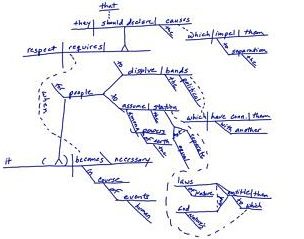 I just finished The Story of a Brief Marriage, by Anuk Arudpragasam. I can’t say I read the whole book–a painful though extraordinary tour de force that covers one day through the eyes and voice of a young man in a refugee camp in an unnamed country. I had to skim certain parts, despite the excellent writing.
I just finished The Story of a Brief Marriage, by Anuk Arudpragasam. I can’t say I read the whole book–a painful though extraordinary tour de force that covers one day through the eyes and voice of a young man in a refugee camp in an unnamed country. I had to skim certain parts, despite the excellent writing.
This paragraph seems so true to me, so beautifully thought through!
“Conversation was a fragile thing after all, like a plant that grows only in rich, warm, nourishing soil. Just as the cells of the human body couldn’t survive above and below certain temperatures, just as human eyes couldn’t see above and below certain wavelengths of radiation, and human ears couldn’t hear above and below certain thresholds of frequency, perhaps there existed only a narrow range of conditions under which human conversation could flourish. It wasn’t that people in the camps didn’t want to talk, for human beings would always talk, if they had the opportunity. Conversation was like an unspooling of invisible fiber that was shot into the air as a stream of sound, that entered the body through their ears, that went from those humans to others, and from them to yet more. Thoughts, feelings, and conjectures, stories, jokes, and slander were nothing but thinly spun threads that tied the insides of people together long after speaking had ended, so that communities were nothing more than humans held together in this way, in large, intricate, impenetrable webs whose function was not so much to restrict movement as to connect each individual to every other. Needing such a connection people would always find a way to talk, if they could. It was not for this reason that those in the camp had ceased speaking but because, rather, there was simply no longer anything for them to say. The diaphanous threads which in ordinary life had been so easily spun had been dissolved away, leaving nothing left to unspool, and each and every person in the camp had to sit silently alone, lost inside themselves, unable, in any way, to connect.”
This reminded me of a segment I heard about Cambodian women in a camp after the terrors of the Khmer Rouge. They were so disconnected they could not touch anyone, and a woman there began to teach them manicuring skills as a way to start to reconnect with other human beings, as a first step out of the solitude and the horror, a first step back to humanity.